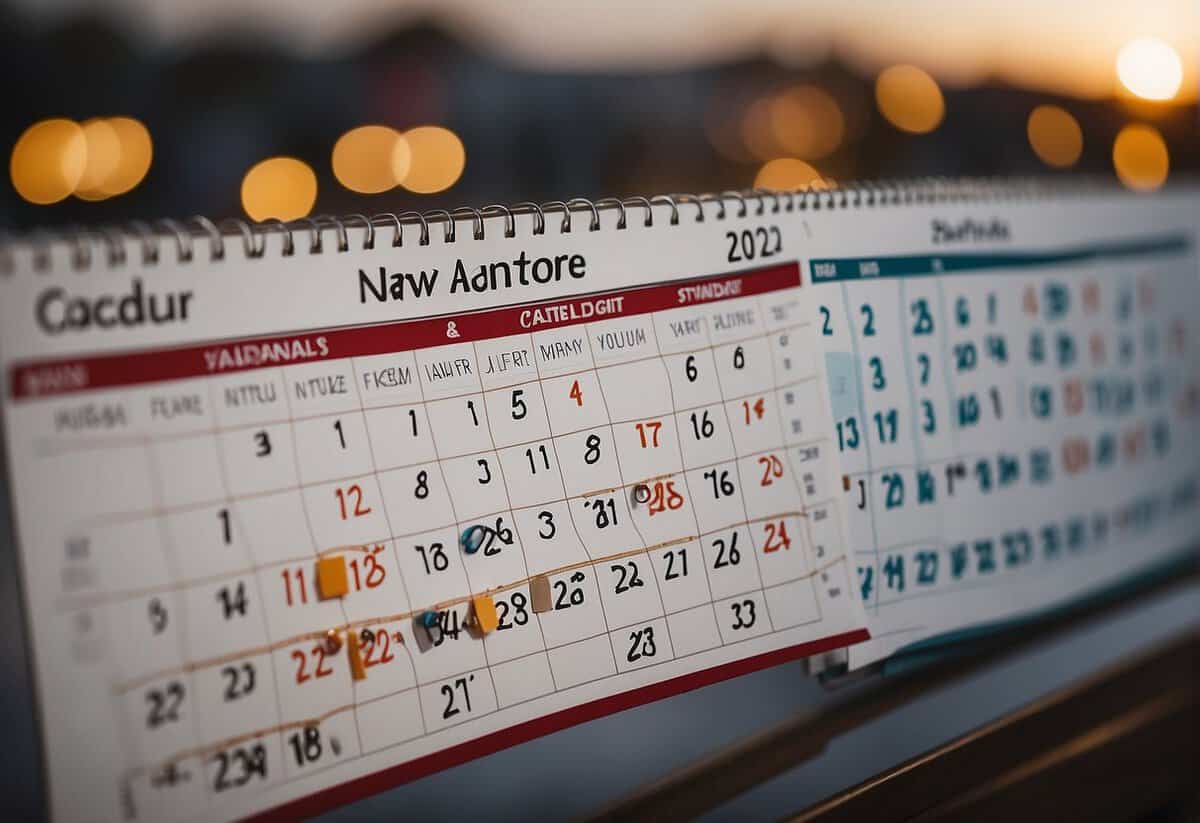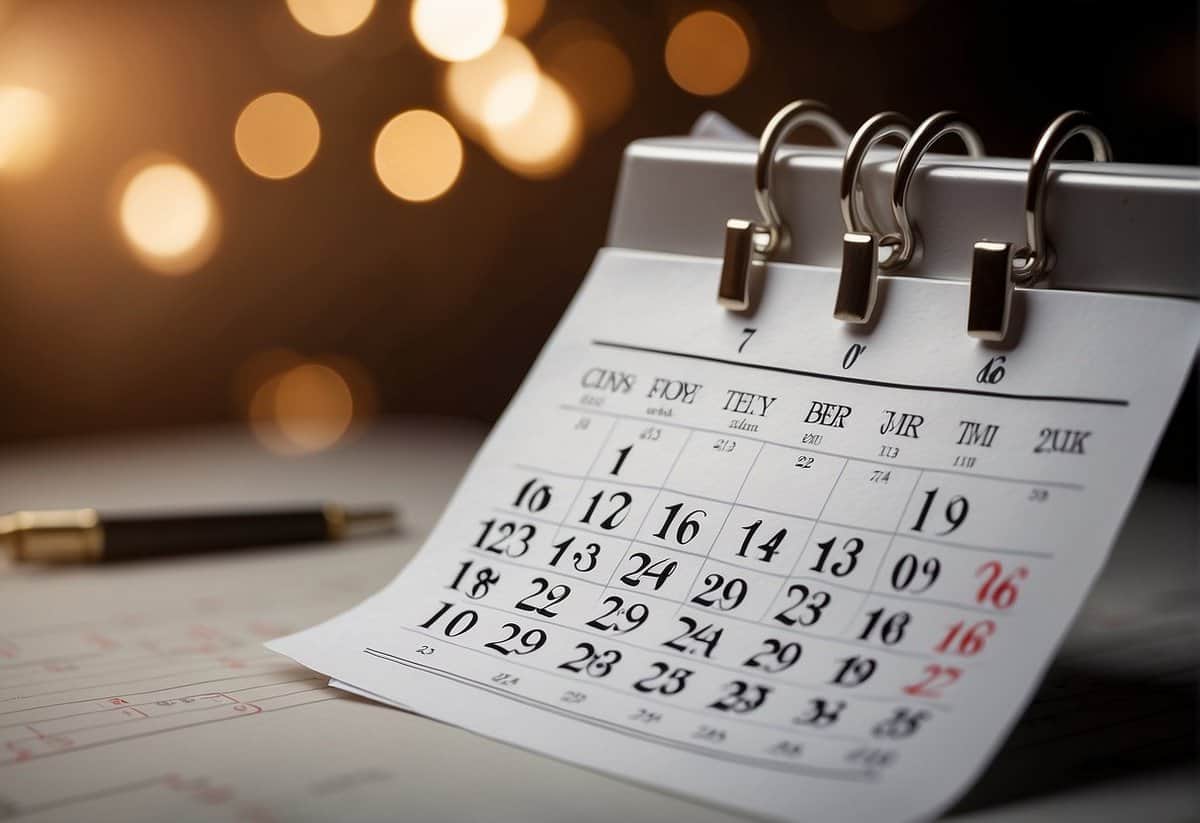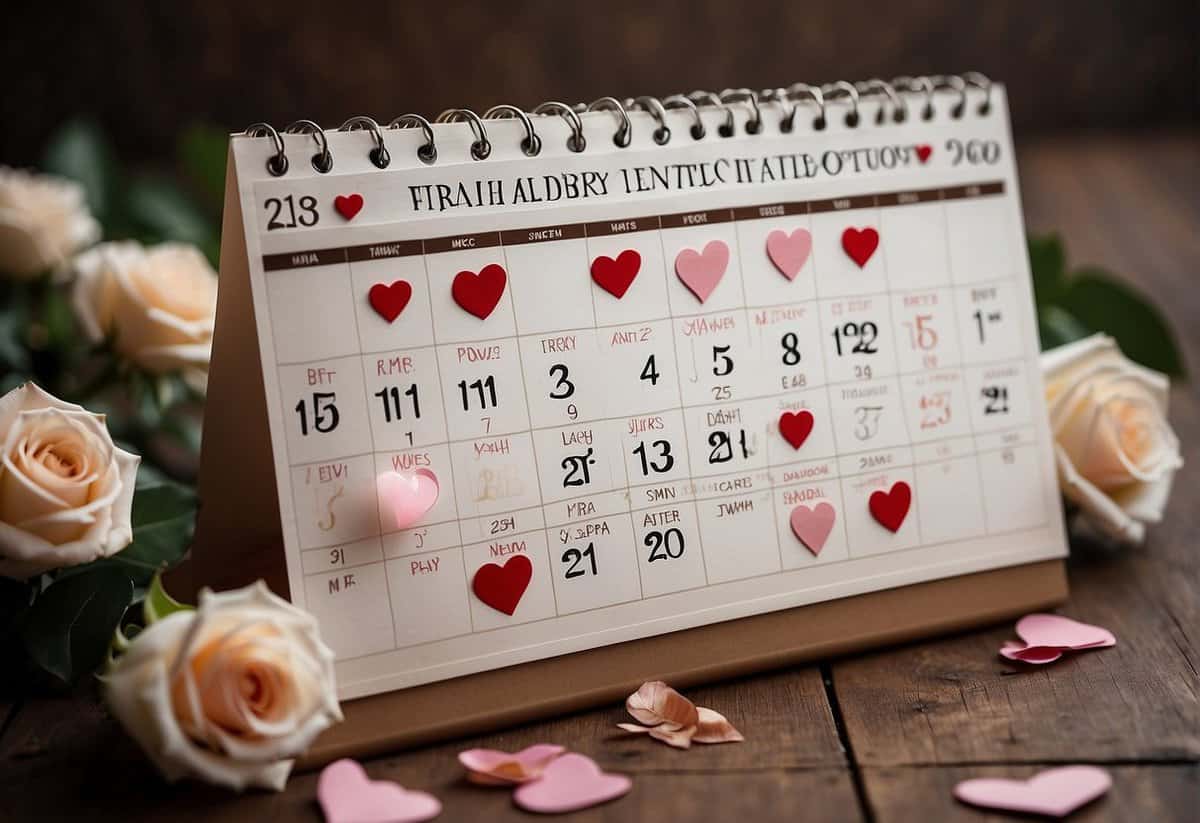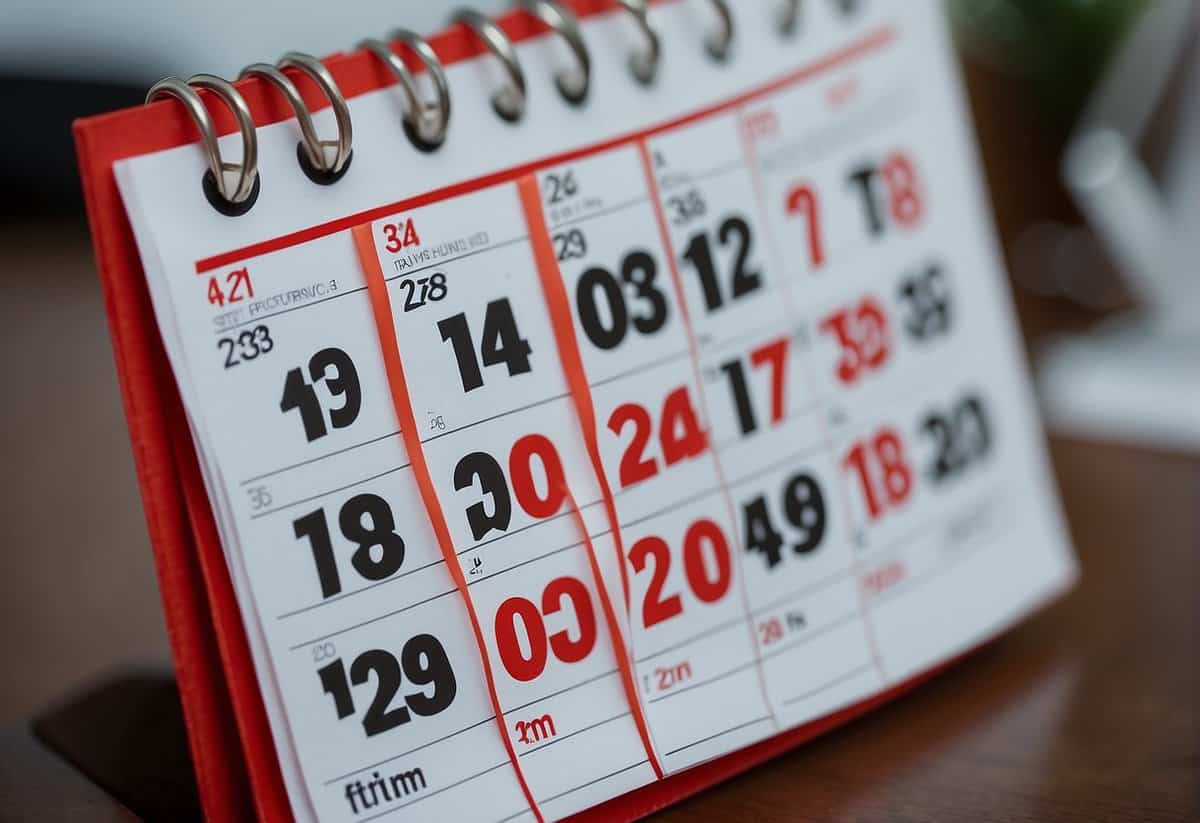Should You Match Your Wedding Date? Tips for Choosing a Memorable Day
Deciding on a wedding date is a critical step in the planning process that sets the stage for your big day. When considering whether to match your wedding date with your personal milestones or favorite seasons, think about the significance of the date to you and your partner. Is there a specific time of year that holds sentimental value or would your preferred season complement the wedding theme you envisage?

Your choice of wedding date can also be influenced by practical factors, such as venue availability, budgetary constraints, and guest convenience. Balancing the emotional importance of a date with the logistical aspects often leads to a decision that best reflects your shared priorities. Remember that your wedding date is the first step in sharing your love story with your guests; choose a date that resonates with your journey together and sets the tone for your future as a married couple.
Key Takeaways
- Your wedding date should reflect personal significance and shared memories.
- Consider practical factors like budget and guest convenience when selecting a date.
- The chosen date sets the tone for your wedding and begins your shared story.
Choosing Your Perfect Wedding Date

As you embark on the adventure of wedding planning, selecting the right date is pivotal. It sets the stage for the entire event and can affect availability, costs, and the overall atmosphere of your special day.
Understanding Wedding Seasons and Dates
Your choice of wedding season greatly influences the vibe of your wedding. Summer weddings typically offer longer days and warmer weather, making them a favorite for outdoor celebrations. A spring wedding can be enchanting with blooming flowers, although you might encounter unpredictable weather. Fall weddings are known for their rich colors and crisp air, and can be less costly than peak summer months. If you’re considering an off-season wedding, you may benefit from more venue options and potentially lower prices.
The Significance of Saturdays
Saturdays are the most popular wedding months, for a good reason. It’s easier for guests to attend with minimal time off work, and it allows for a full weekend of festivities. However, because of their popularity, Saturdays during peak wedding season can also be the most expensive and competitive dates to book. If you’re open to it, weekday weddings can be a savvy alternative to not only save money but also to ensure your preferred venue is available.
Avoiding Major Holidays and Events
Choose your wedding date wisely by steering clear of major holidays to avoid and big events in your area. This can help ensure that your wedding doesn’t clash with other celebrations which might make it difficult for guests to attend and could also impact venue and service costs. Take special care to check the calendar for local events that could affect traffic and accommodation availability on your big day.
Wedding Planning Logistics

When planning your wedding, it’s crucial to focus on logistics to ensure your special day is as you envision it. Logistics involve securing the right venue, managing your budget effectively, and coordinating with vendors for seamless execution of your plans.
Venue Selection and Availability
Selecting a wedding venue is akin to laying the foundation for your event. You want to ensure the place aligns with the ambiance you desire and can comfortably accommodate your guest list. Consider booking your venue far in advance to avoid any date clashes, particularly if it’s a sought-after location or you’re marrying during peak season. Also, be mindful of local events that might affect venue availability or accessibility on your chosen date.
Budget Considerations
Your budget is the driving factor behind many decisions you’ll make for your wedding. It’s vital to set a clear budget early in the planning process to allocate funds appropriately across different categories such as venue, attire, and vendors. Here are some points to keep in mind:
- Venue costs: This typically consumes a significant portion of the budget. Look for packages that can stretch your dollar further.
- Vendor expenses: Remember to include photography, catering, decor, and entertainment in your budgeting.
Vendor Coordination
Working with wedding vendors requires clear communication and coordination. Each vendor—a florist, photographer, caterer, or musician—plays a crucial role in bringing your wedding vision to life. Create a timeline for when to book these professionals and when to send out save-the-dates to ensure everyone’s on the same page. Furthermore, discuss your expectations clearly and check in regularly to avoid any miscommunication.
Personalizing Your Wedding Date

When personalizing your wedding date, considering significant numbers and life events can make the day even more memorable. Keep in mind the implications this might have for your wedding style, including dress code and theming, to ensure the date feels unique to you and your partner.
Numerology and Significant Numbers
Your wedding day can be imbued with extra meaning by incorporating numerology. If you have a lucky number or a life path number that’s significant to you and your partner, you could choose a date that reflects this. For instance, if the number seven is lucky for you, getting married on the 7th of the month could bring a sense of personal significance to your special day.
Aligning with Special Life Events
Align your wedding date with other special life events such as the anniversary of your engagement or the day you first met. This double celebration can deepen the connection that you and your guests feel on your special day. If you opt for a destination wedding, selecting a date that’s significant to not just your relationship but also the location can add an extra layer of personalization to your wedding.
Seasonal Themes and Wedding Style
Selecting a date that aligns with a specific season allows you to leverage seasonal themes and styles. A summer date might entail a more relaxed dress code with vibrant colors, while a winter wedding could call for formal attire with velvet pocket squares or warm, rich tones. Whatever you choose, ensure that the wedding theme aligns with the formality and wedding style that resonates with your personal tastes.
Frequently Asked Questions

When attending or planning a wedding, you may ponder how to synchronize fashion choices for the memorable event. Here’s how you can harmonize your look with style and grace.
How should a couple coordinate their outfits for a wedding?
Choosing complementary shades and fabrics can create a cohesive appearance for a couple. It’s about harmonizing without mirroring each other exactly.
Is it considered good etiquette for a couple to match their attire at a wedding?
Yes, it is generally well-received for couples to match their attire at a wedding, indicating thoughtfulness and unity.
What are the guidelines for matching outfits as a wedding guest couple?
When matching outfits as a guest couple, pick out elements from each other’s attire, like color or pattern, to subtly coordinate your look.
Can the best man’s attire complement the date’s dress at a wedding?
Indeed, the best man’s attire can coordinate with his date’s dress through matching color accents like a tie, pocket square, or boutonniere.
How do family members match outfits for a wedding without overshadowing the bridal party?
Family members can choose outfits that echo the wedding’s color scheme while ensuring they are less elaborate than the bridal party’s outfits.
What factors should be considered when deciding whether to match your partner’s attire for a wedding?
Consider the formality of the event, wedding theme, and venue when deciding to match your partner’s attire to ensure your look is event-appropriate.

